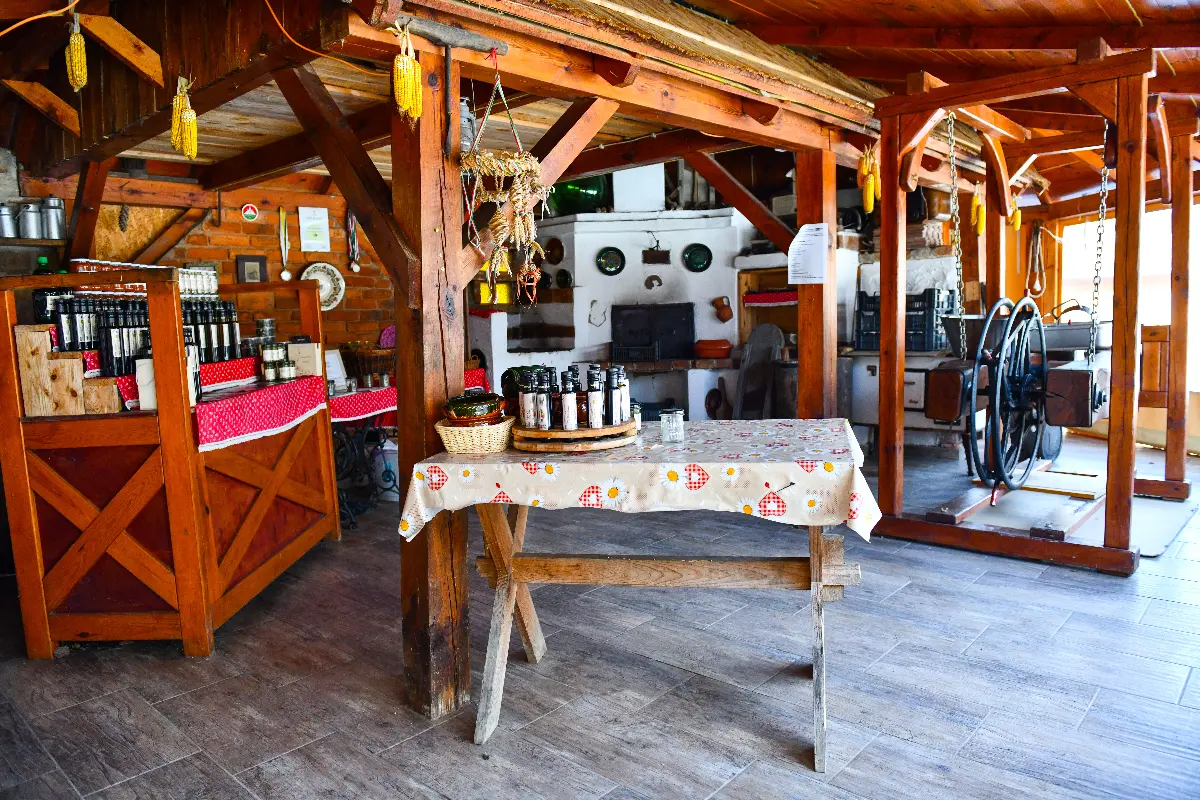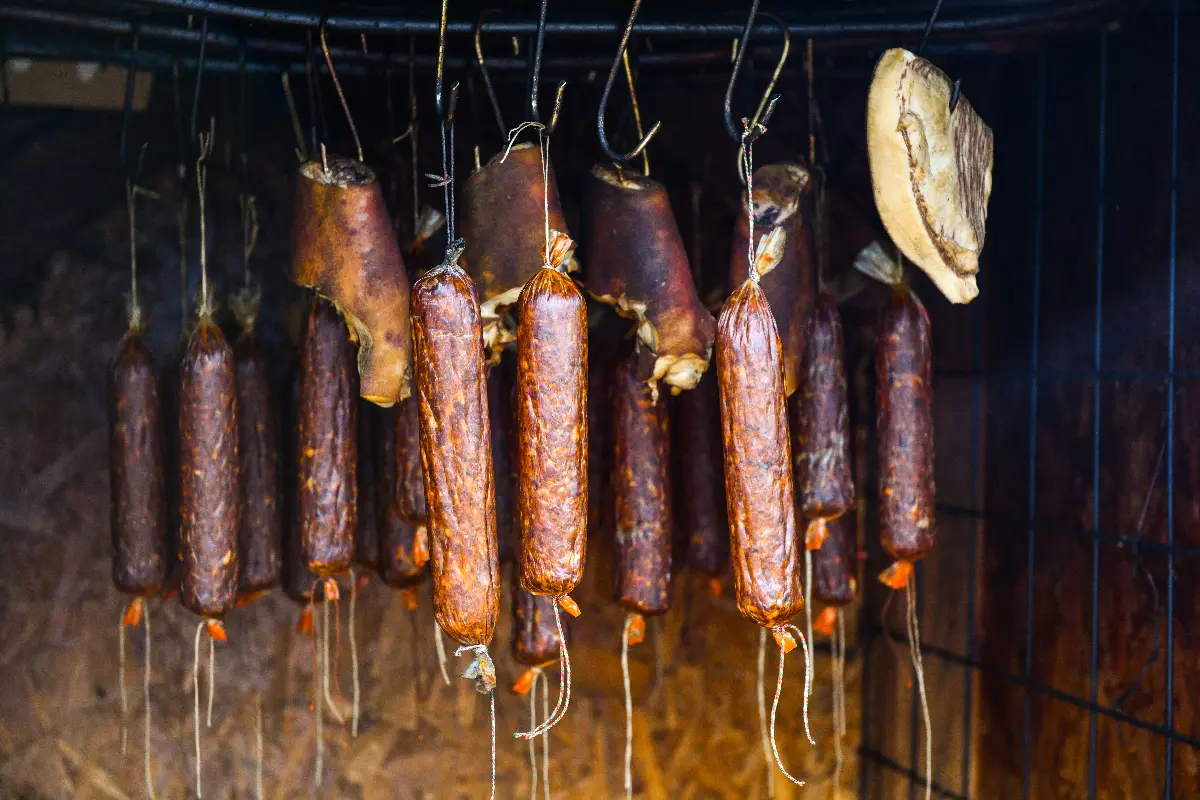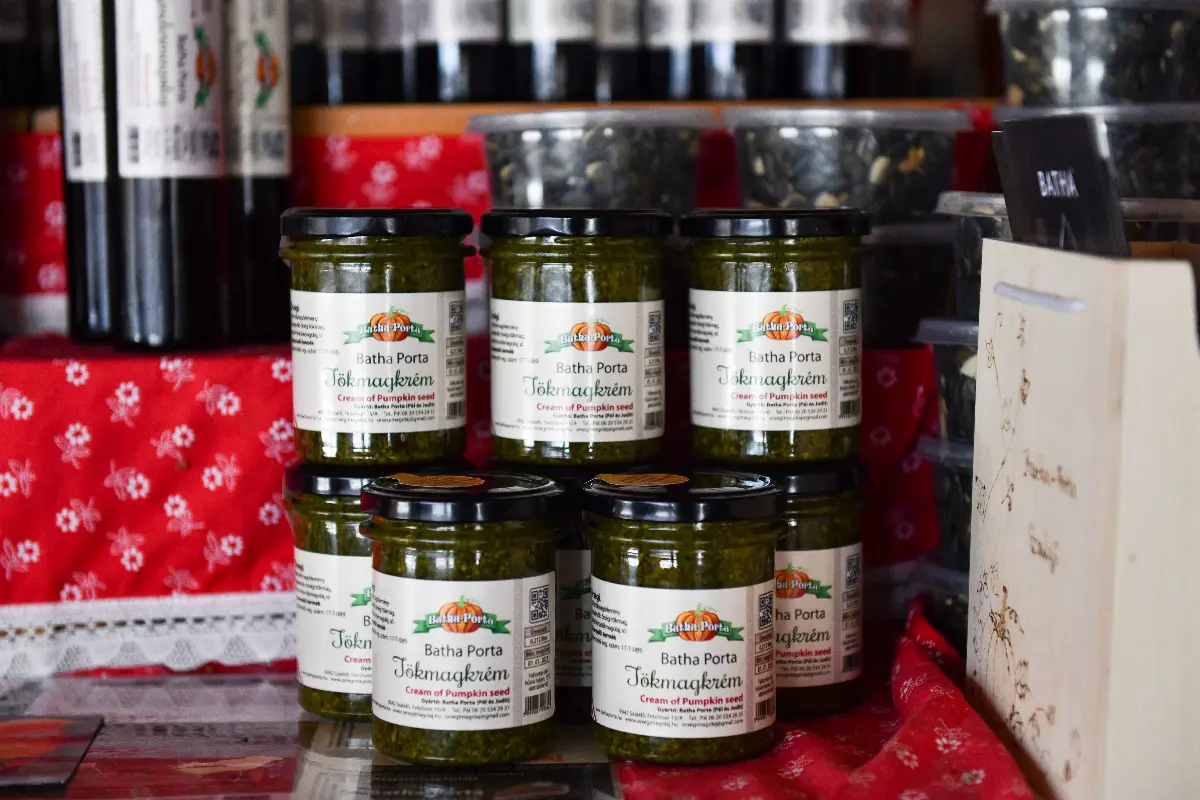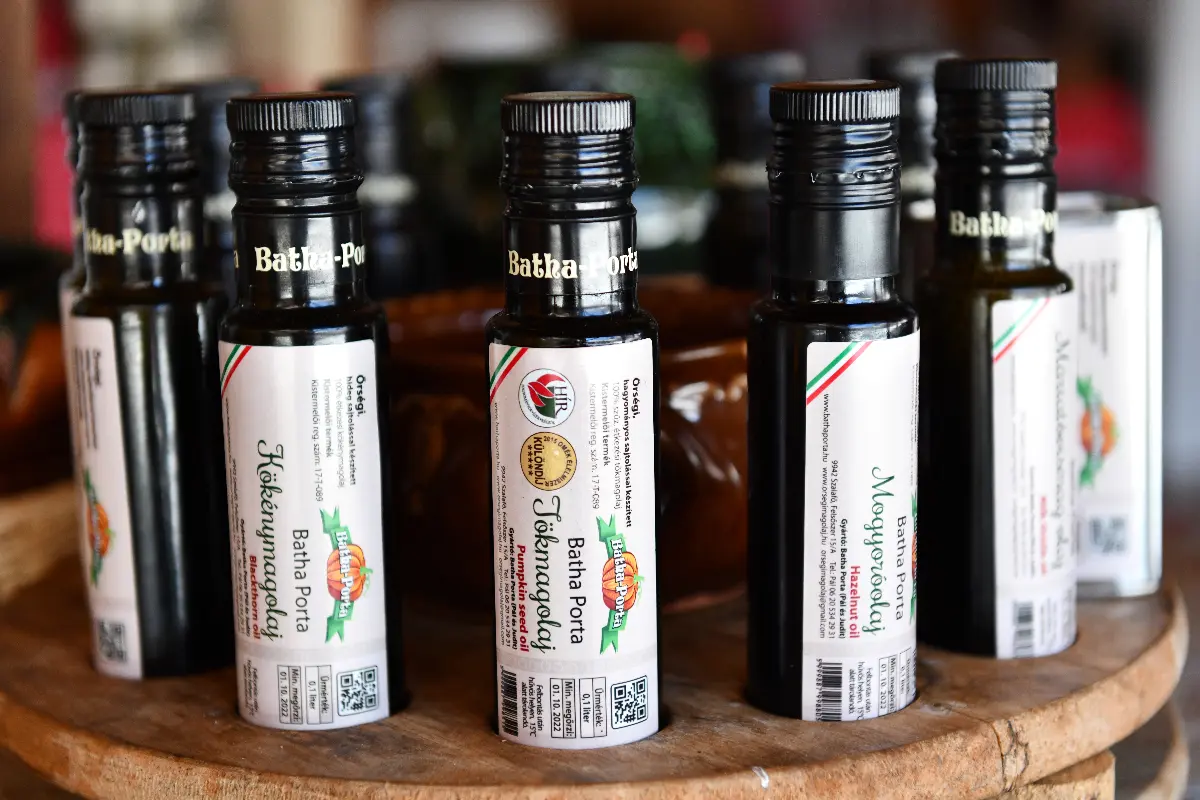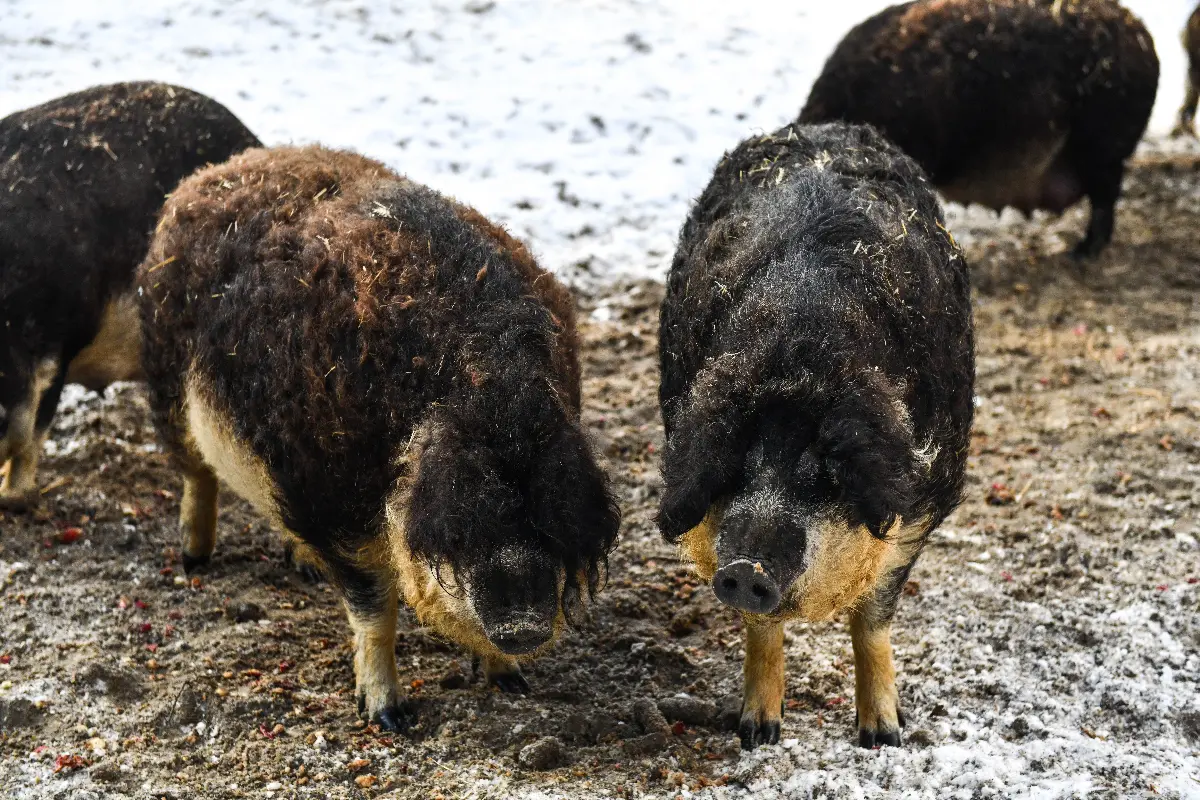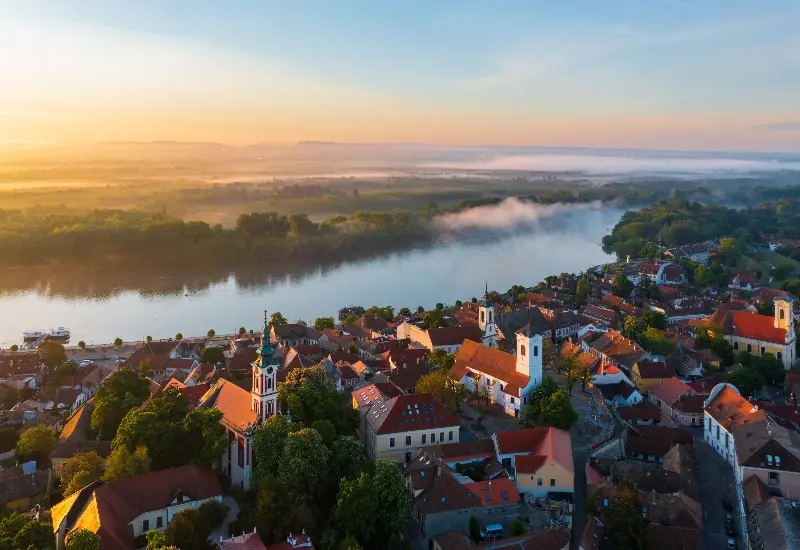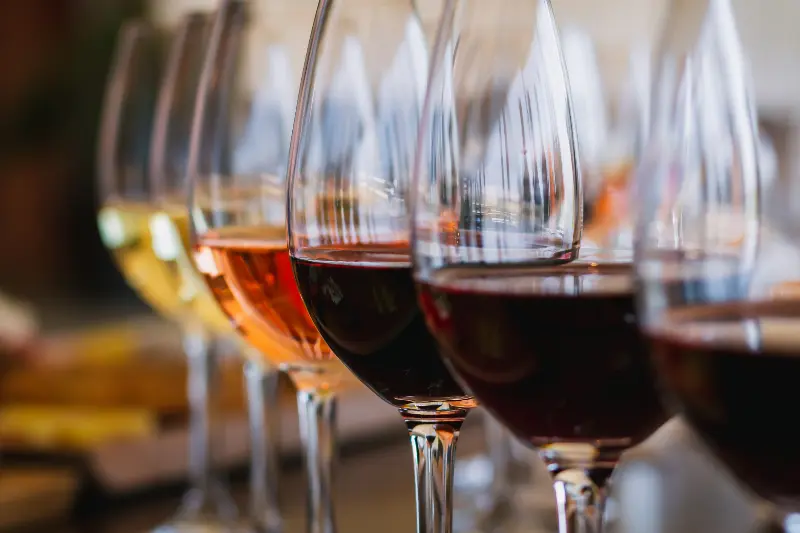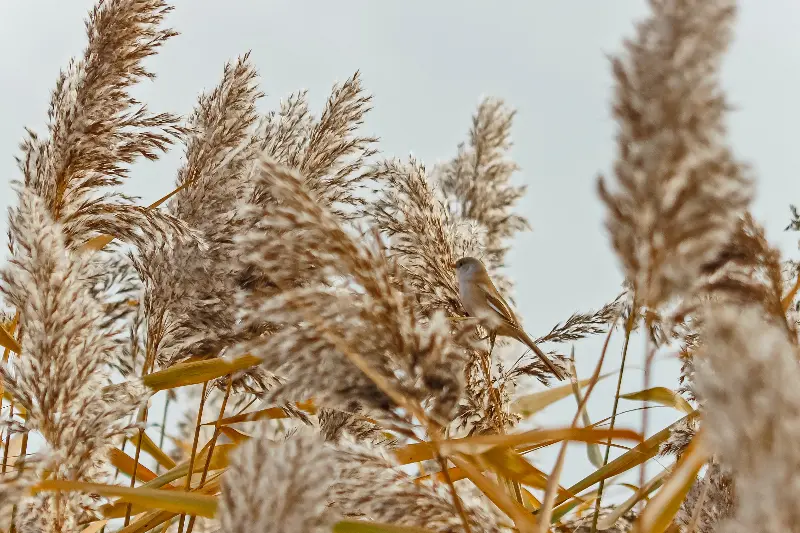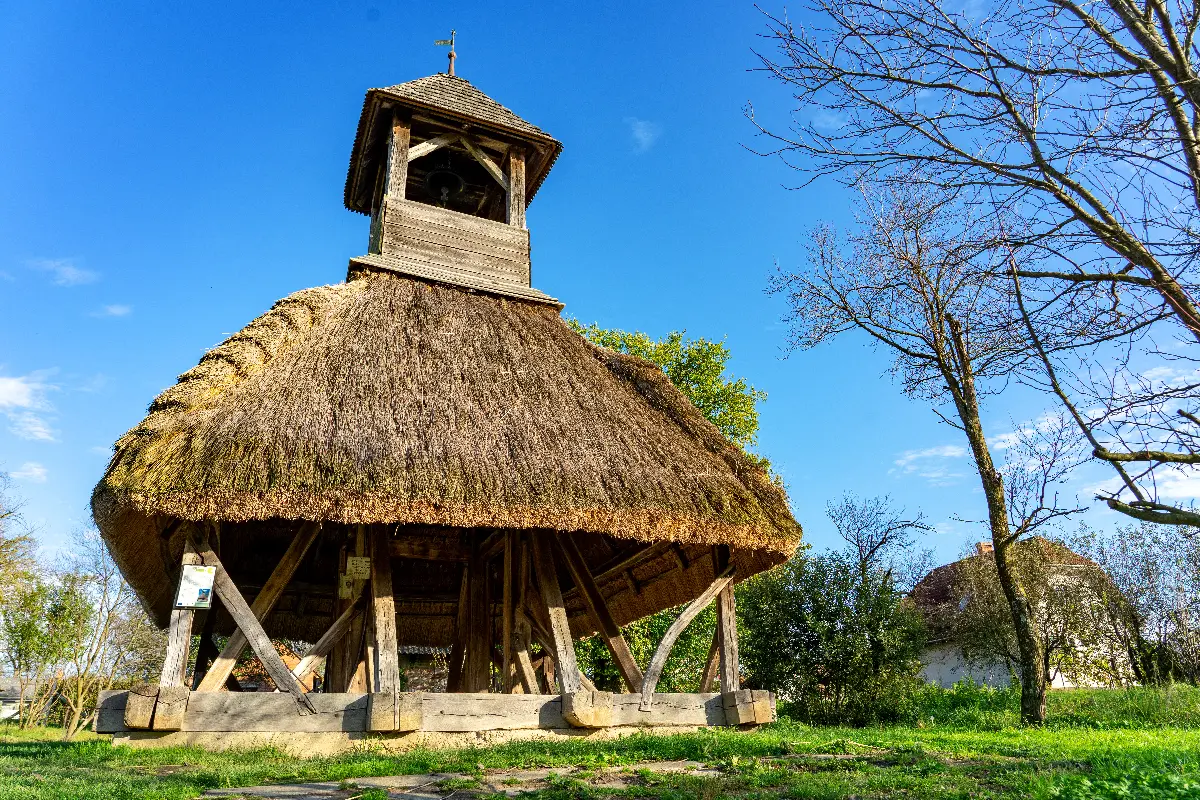
Helyszín címkék:
Pumpkin seed oil, the green gold of the Őrség
Méhész Zsuzsa
Between Slovenia and Austria
tIn the south-western border region between Slovenia and Austria, the Őrség and Vendvidék regions offer all shades of green. In autumn, the farmland between the hills is dotted with pumpkins arranged in endless strips. They are not for Halloween but used to make one of the region's most typical products: pumpkin seed oil. Every distinct region has its own flavours and recipes. Pumpkins have found a home in the modest soils of the Őrség: their flesh used to be fed to animals, while the seeds were cleaned and processed into oil. The tradition of their grandparents is still kept alive by the people of the Őrség: at every market and local festival there are large piles of pumpkin seed oil bottles. It used to be made in mills, and Antal Jakosa once built the first oil mill in Szalafő. Before that, the locals had to travel to the neighbouring Vendvidék, sometimes waiting two days for their turn. Antal Jakosa asked for the seventh litre of every litre of oil he pressed in return for his work. In his footsteps, two families in Szalafő are now engaged in pressing pumpkin seed oil and also in hospitality.
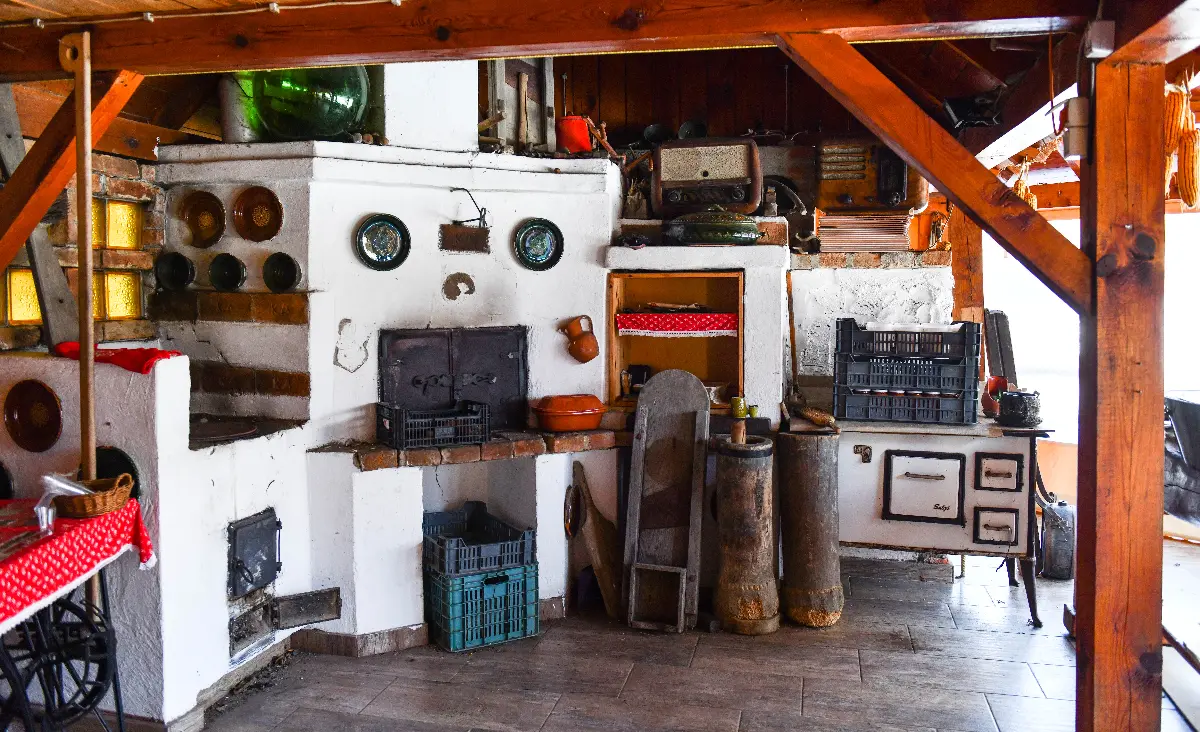
Őrség pumpkin seed oil
Visitors to Őrség are bound to try the famous potato “dödölle”, as well as the pumpkin and poppy seed strudel, and if you are lucky (or book early), they can also get a table at one of Hungary's best country restaurants, the “Pajta” (Shed), where local flavours and traditions also provide the basis for the excellent dishes on the table. And maybe it is also highly likely: somewhere in your luggage on the way home, you will have a bottle or two (or more) of pumpkin seed oil. In addition to Parma ham, Modena vinegar and Szatmár plum jam, the collocation of “Őrség pumpkin seed oil” has become a permanent part of the vocabulary.
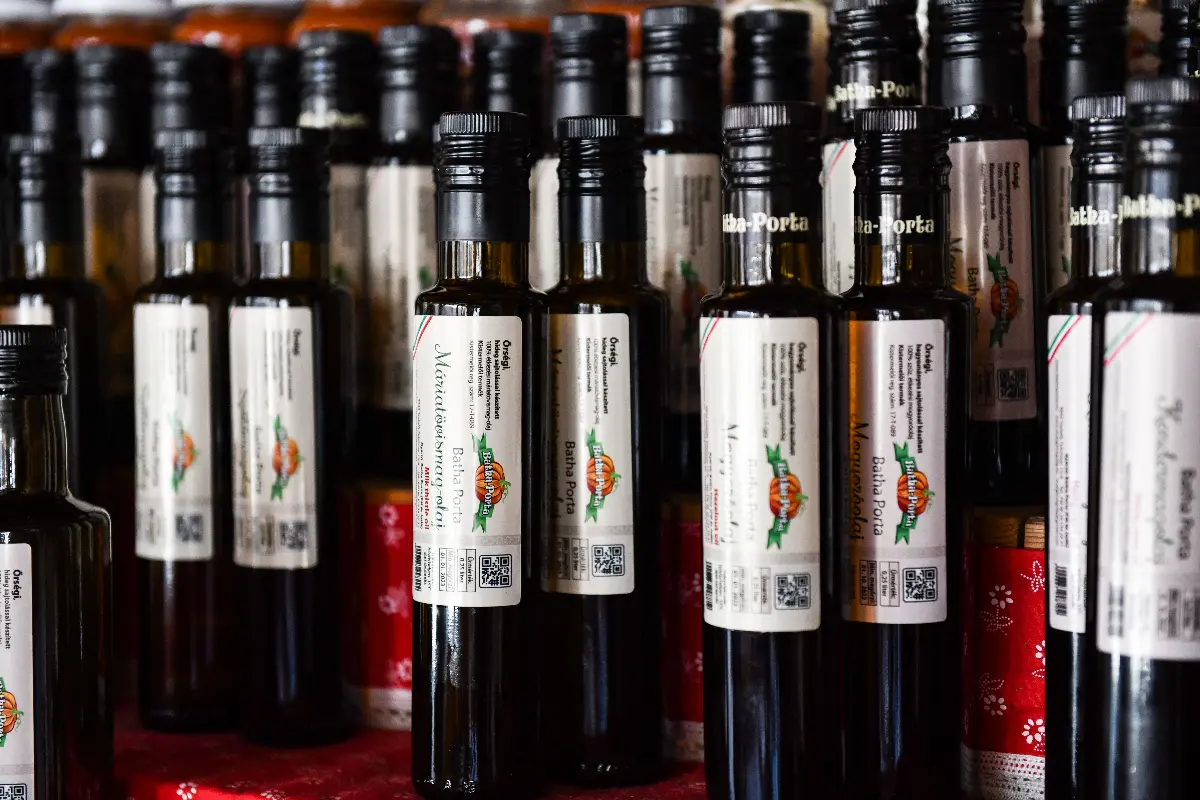
So called medicine
You may think of this as ancient, along with pumpkin, because it has been in folk medicine for so long, even though the pumpkin we know and love today came to Europe from the New World. However, pumpkin seed oil has little to do with the delicious pumpkin: initially it was pressed from the seeds of the pumpkin, a by-product of poor-quality fodder pumpkins, and then came the crop bred for the purpose, with the seeds already shelled.
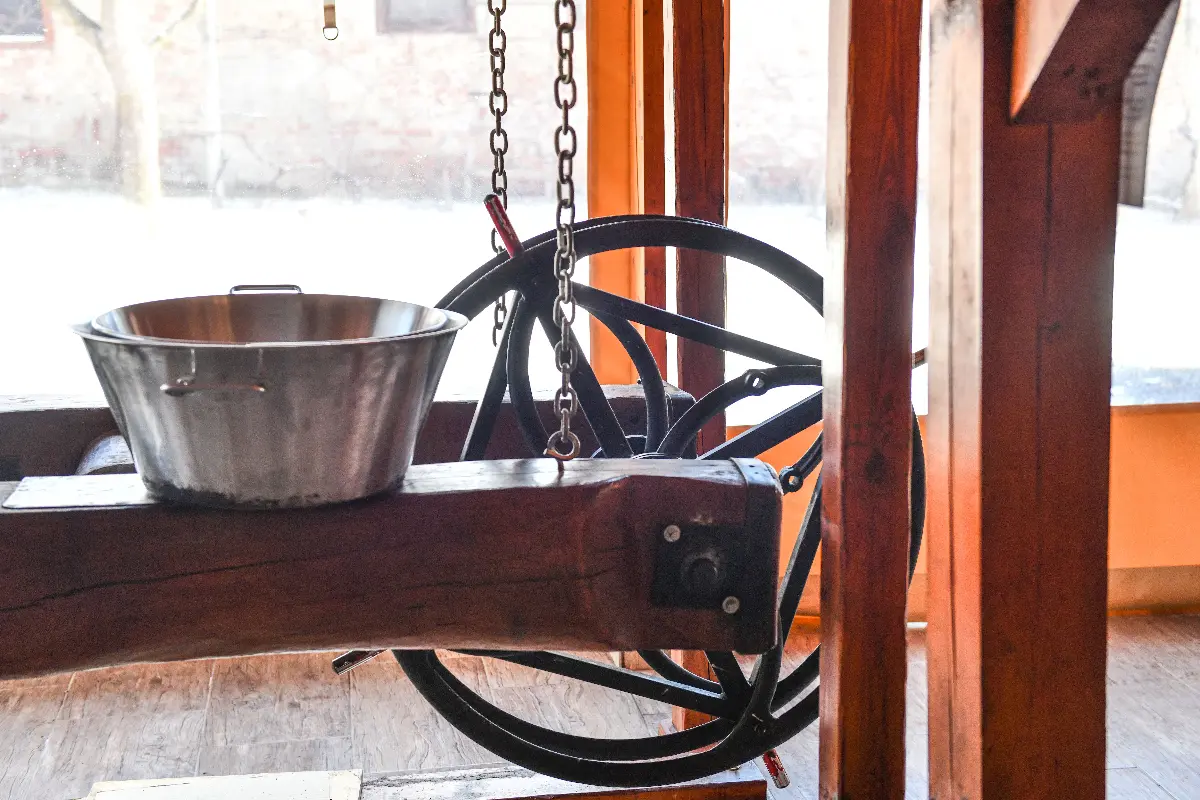
Magical place
Every part of the Őrség is a magical place, a precious piece of the past, but to see how pumpkin seed beer is made, you should visit Szalafő. Two companies are involved in oil pressing, but you can not only buy oil, butalso see the production process at the Balogh or Batha family oil mills. The workshop is both a showroom and a shop: this is where they make their hot and cold pressed oils. Pumpkin is the most popular, but you canalso find and taste poppy, walnut, milk thistle, hazelnut, rose hip, flax and hemp seed oils. Even during the demonstration, the machines run quietly, dripping thick oil, and the end product is the seed residue, which is sold as healthy chips. Hot-pressed oils are more popular and closer to common taste. However, those made using the cold process are much richer in vitamins and have been shown to have a more powerful physiological effect. We will not go into the physiological effects of eating industrial amounts of pumpkin and poppy seed strudel after tasting and buying oil, but we will say this: it would quickly become a habit if you lived in the area.
